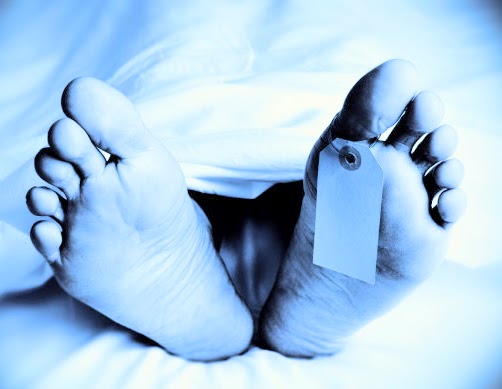 I don’t know if Andy Street, head of John Lewis, plays football, but he’s certainly a master of our second most popular sport: French bashing.
I don’t know if Andy Street, head of John Lewis, plays football, but he’s certainly a master of our second most popular sport: French bashing.
Nothing in France works, he says. In absolute terms he’s not far wrong: most things in France don’t work as well as they should.
But by comparing St Pancras favourably to Gare du Nord, Mr Street implied that his standards aren’t absolute but comparative. One can also infer that he uses Britain as the baseline value.
By such relativistic standards I’d say that most things in France work famously. Granted, I haven’t conducted an extensive study to reach this conclusion, but then neither, one suspects, has Mr Street to reach his.
For example, France’s health system, cleverly blending the private and public sectors, is vastly superior to our socialist leviathan of the NHS.
I don’t know how much exposure Mr Street has had to French medicine but, after 14 years of dual residence, I’ve had a fair amount.
It’s only one man’s experience, but I can always get a GP appointment in France within hours – as opposed to at least 10 days at my West London surgery. In fact I remember the shock of ringing my local GP’s receptionist in France and hearing her apologise that the doctor wouldn’t be able to see me until after lunch.
France’s infrastructure is also much better than ours. Not only her toll motorways but even minor country roads are regularly resurfaced and beautifully marked, which takes French workmen days – not weeks as in England.
A few years ago it took the French just a month to build a 10-mile bypass around a town on the Loire – compared to the four months it took our lot to resurface and tart up Putney Bridge.
Although Gare du Nord is indeed dingy, public transport in France outperforms ours by a wide margin and it costs a lot less. Fair enough, it’s heavily subsidised, but our train system didn’t work well when it was nationalised and it doesn’t now when it’s private.
Modern architectural monstrosities at the outskirts of major cities may be even more revolting in France than in Britain, although I’m not sure how quantifiable ‘revolting’ is. But at least the French have the good taste of not befouling their handsome city centres, something we manifestly don’t possess.
Although the standards of food are declining in France, only someone with perverse taste would claim, as Mr Street did, that British cuisine is better.
True enough, food may be more varied in London than in Paris, and the wine may be as good, yet the London food wouldn’t usually be British and the wine is likely to be French.
Public education in France is sliding down the hill in our general direction, but it still has a long way to go.
A month or so ago, I had dinner with a few French friends, none of whom was a professional intellectual. A couple of them were lawyers, one was a banker and another one some kind of business consultant.
Again, on the basis of one man’s experience, I’d say they are all better educated than one would expect from their English equivalents.
For example, when the conversation touched upon the Venerable Bede, it turned out they not only had heard the name but had actually read The Ecclesiastical History of the English People, albeit a long time ago. Would their English counterparts be similarly erudite?
None of my French friends sounds ‘sclerotic, hopeless and downbeat’, in Mr Street’s phrase. They’re actually quite jovial and considerably more upbeat than my English friends who, in addition to all the same problems as in France, are also driven to distraction by the EU, the wicked setup the French ill-advisedly welcome.
France’s population is roughly the same as ours. They work about 25% fewer man/hours per year, and their businesses are strangulated by more red tape than one sees here. Yet their GDP is slightly higher than Britain’s, which means their productivity is much greater – something also observable in the speed of their road works.
What doesn’t work in France is politics, and it’s the millstone pulling the country down to the bottom. Amazingly she’s even more socialist than Britain, and it’s not just the international variety, Marxism, that thrives in France.
Also gathering speed is the national socialism of Marine Le Pen’s lot, the National Front. One gets the impression that socialist extremism of any kind has no difficulty working its way into France’s political mainstream.
We, on the other hand, have successfully marginalised our own National Front (BNP). Alas, our answer to François Hollande, Ed Miliband, is likely to win the next election. Thus if at present we enjoy a slender political lead over France, even this wafer-thin edge is likely to disappear in a year’s time.
Given the low education and productivity levels of the British labour force, this will create an economic catastrophe that’ll drive London’s 300,000 Frenchmen back to France, or possibly across the ocean, faster than you can say adieu.
Meanwhile, they may be thriving here, but their children go to French schools, they buy their bread at French bakeries, their cakes at French patisseries and they only ever use the NHS because it’s ‘free’, not because it’s any good.
However, for those of us who don’t have to make a living in France, the country works very well indeed. Why, we’ve even learned to be polite enough not to slag off the French who after all have created the lovely place we enjoy so much.
Andy Street ought to pick up French manners too. And, if he doesn’t want to be accused of hypocrisy, he shouldn’t advise others not to invest in France at a time John Lewis is opening a French-language website.
Why, Andy, beholdest thou the mote that is in thy French brother’s eye, but considerest not the beam that is in thine own eye?








Comments